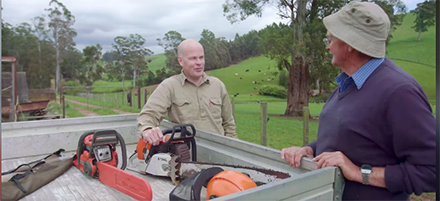The withdrawal of a high-profile, error-filled University of Tasmania study linking logging practices to an increased risk of bushfires is an unfortunate reminder of how easily faulty science can gain credibility. More importantly, it demonstrates the importance of rigorously reviewing scientific claims.
The paper – Propensities of Old Growth, Mature and Regrowth Wet Eucalypt Forest, and Eucalyptus nitens Plantation, to Burn During Wildfire and Suffer Fire-Induced Crown Death – by UTAS academics Suyanti Winoto-Lewin, Jennifer Sanger and James Kirkpatrick, was published in the journal Fire but recently withdrawn from publication due to significant errors.
The publication during the Bushfire Royal Commission was met with much fanfare, with articles calling for an end to all native forestry appearing in major Australian newspapers and being heavily promoted by the likes of the Greens, the Bob Brown Foundation, the Wilderness Society and other long-term opponents of native forestry.
As well as the data errors, which I’ll discuss later, another detail that slipped by unnoticed was that the publication fees were paid for by the Bob Brown Foundation and the Wilderness Society.
As Tasmanian Labor’s Forestry spokesperson, I received letters after publication, including from one of the authors – Dr Jennifer Sanger – on behalf of the Independent Science Council of Tasmania, calling for an end to all native forest operations.
This is part of a long-term strategy of shifting the goalposts. What started as a campaign to protect old-growth forests has evolved into protection of all native forests, with environmental splinter groups like the Bob Brown Foundation regularly contesting coupes in agreed permanent production zones.
Labor has endeavoured to strike a balance between protecting our natural assets and supporting jobs in a viable timber industry.
But we stand firm in refusing to support a reduction in the native timber resource available to industry through the creation of new reserves or additional no-go coupes.
What the environmentalists fail to acknowledge is that any logging by Sustainable Timbers Tasmania (STT) must adhere to strict planning and codes of practice, as set out in legislation and monitored by the Forest Practices Authority. Compared to past operations, their forestry footprint is now tiny, with half of Tasmania in some form of reservation – far in excess of any global benchmark.
Under this resource-management approach, any logging is on a long-term rotation and there are legislated regeneration requirements. It’s been so successful that forests that have been logged a number of times are now considered to be of “high-conservation value.”
But it seems there is no place for evidence and forestry science in the environmentalists’ propaganda war.
Which brings me back to the paper in question. Contrary to environmentalists’ claims, the science of forestry and bushfires is not settled, but heavily contested in the scientific literature. Experienced foresters picked up errors in the FIRE paper by using the published coordinates of the data points and google maps.
Among the errors were complete misclassifications of forest types, button grass plains identified as forest and burn severity claims that couldn’t be reconciled with publically available fire spread information.
To the authors’ credit they agreed to retract the paper. But the question remains how could this happen? The quality issues of the data should have been picked up in the review process.
The Greens and the Bob Brown Foundation bizarrely claim that the errors are not the fault of the authors but of STT. But, with STT stating they never received a request for data, this beggars belief.
As an agricultural scientist, with a degree and a doctorate, I take science seriously. The Greens are the first in line to trash peer-reviewed publications from forestry agency scientists, and yet they have no problem with the Wilderness Society funding anti-forestry research.
Given the paper’s impact, the significant errors and the connections of the authors to environmental activists, the authors’ employer, UTAS, must investigate how these errors were not picked up in the review process.
The University’s reputation is on the line. Rigorous science must never be compromised – there is too much at stake for us all.
Shane Broad MP is Tasmanian Shadow Minister for Primary Industries and Water, Shadow Minister for Police, Fire and Emergency Services and Shadow Minister for Resources Tasmania. He has a doctorate in agricultural science.








